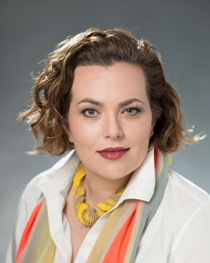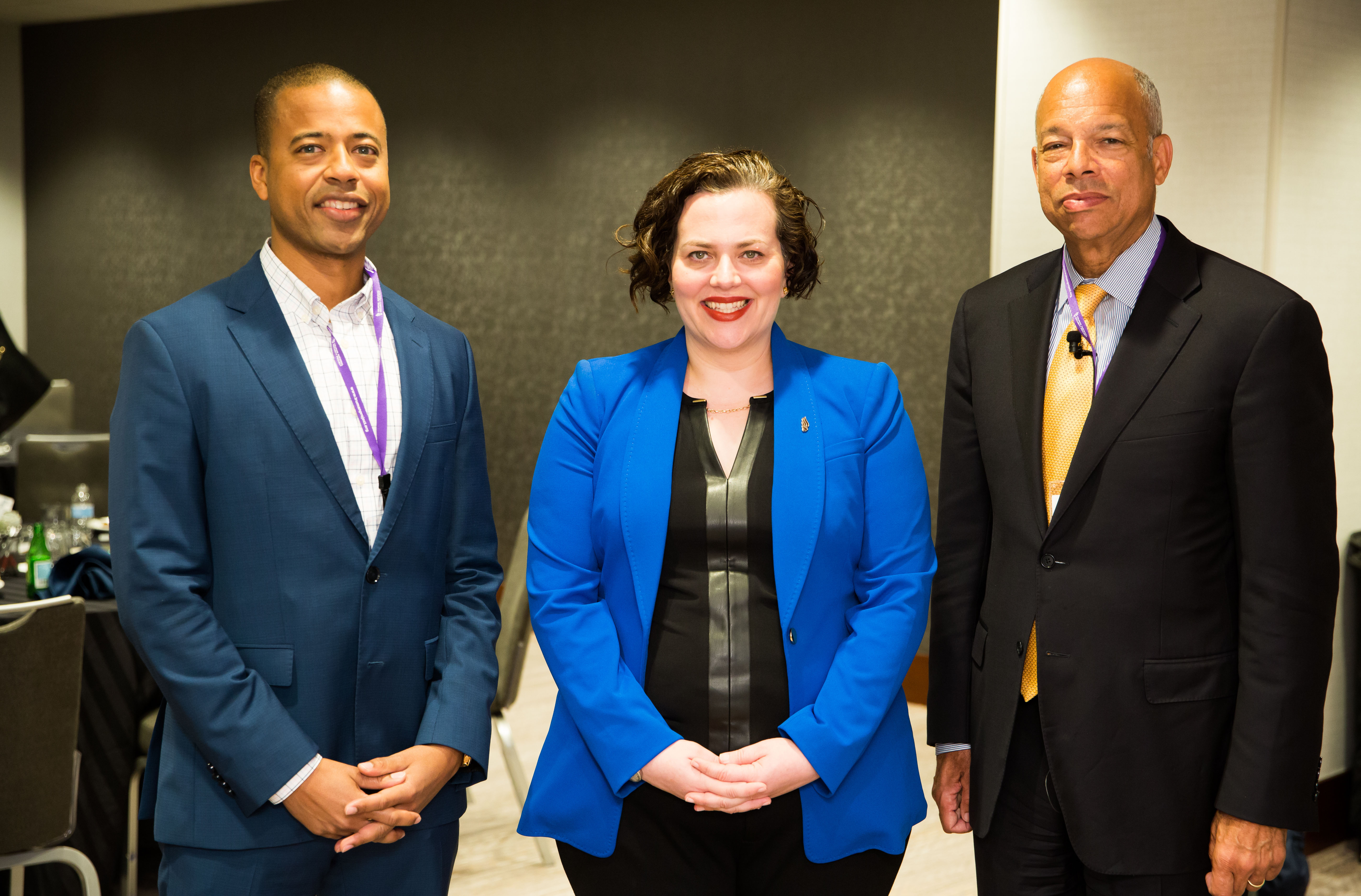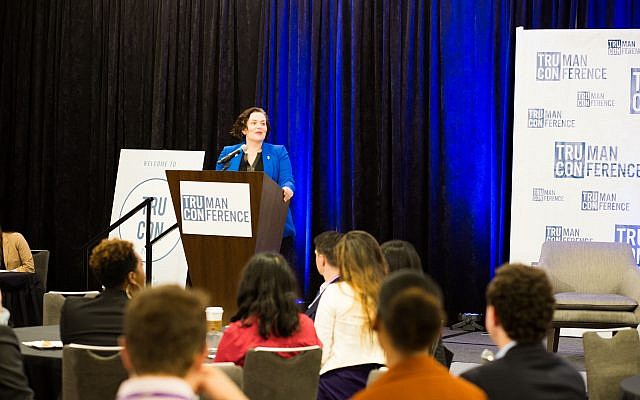National Security Expert Talks Foreign Policy and More
Jenna Ben-Yehuda, President and CEO of the Truman Center, sat down with the AJT to discuss foreign policy and national security and its relevance in 2020.
Born in Atlanta, Jenna Ben-Yehuda has made her way around the world and now serves as CEO and president of the Truman Center and the Truman National Security Project. She was back in her hometown this week and spoke to the AJT about foreign policy and national security and the role that they play in the lead-up to the 2020 elections.
Ben-Yehuda spent over a decade at the State Department in a range of policy, programmatic and intelligence roles, including serving at the U.S. embassies in Panama and the Dominican Republic. She stepped into her current role this spring.
AJT: What appealed to you about a career in international relations and foreign policy?

Ben-Yehuda: My maternal great-grandfather, a rabbi in Savannah, was originally from Lithuania. So that story about coming from another country was a central part of my family’s history. And on my father’s side, I’m the granddaughter of a Holocaust survivor. So I was keenly aware of how global issues can affect people in their daily lives.
We moved to Southern California and I was immersed in the Latino culture and started learning Spanish when I was in seventh grade, and I fell in love with it. Here’s a community of people who love food and music and are very family-oriented, just like the Jewish community that I knew growing up!
I continued my Spanish studies alongside international affairs, and I lived overseas and started at the State Department when I was 20 years old because I had language skills and they had a shortage of people who spoke Spanish.
AJT: Tell us a little about your time at the State Department.
Ben-Yehuda: I was there for 12 years and worked in four bureaus and two embassies. I started working in international parental child abduction in Latin America and West and North Africa, helping children who had been taken by one parent against the wishes of another to bring them back to the United States.
I went on to work in the refugee bureau helping displaced people from Colombia as well as mass-migration contingency planning for Cuba. I was an intelligence analyst for five years on Haiti, the Caribbean and Central America. I worked in embassies in the DR [Dominican Republic] and Panama for various stints before moving to the policy side, where I managed democracy and governance policy for the 35 nations of the Western Hemisphere.
AJT: What does your current work entail?
Ben-Yehuda: Together our sister organizations have a nationwide membership of policy experts, veterans, defense, communications and campaign professionals all working to advance a progressive vision of national security.
I work to set the strategic vision for the work that we do. For example, right now in the midst of the run up to a presidential election, we’re working to educate campaigns to help get them smart on the issues.
And I’m in Atlanta meeting with our local chapter.
AJT: What does a local chapter do?
Ben-Yehuda: We have 16 chapters around the country, and the Atlanta chapter reflects our members in metro Atlanta. Many of them are academics and business leaders and others are running for Congress. Brenda Lopez [Romero], Michael Owens and Scott Holcomb are just a few.

They focus on issues that affect Georgia while also discussing the national security and foreign policy implications.
AJT: What are some of the critical foreign policy and national security issues that are likely to arise with the upcoming election?
Ben-Yehuda: While foreign policy and national security have not been significant topics in the debates, I’m holding out hope that the debate in September will change that. The reality is that issues regarding foreign policy impact Americans every single day. The president’s trade war with China is changing prices for farmers, manufacturers and consumers all over the country.
The world marches on, and it’s marching on without us. All of the big issues domestically have strong ties to international ones. One thing we’ve seen in the Trump administration is how much latitude the U.S. president has to make decisions on foreign policy.
AJT: What have you taken away from Truman Center’s efforts to inform the debate on national security in the run-up to 2020?
Ben-Yehuda: There is broad consensus on the key national security policies — climate, Iran, support for diplomacy — amongst the major Democratic candidates. Except for this president — who is a tremendous aberration — there has long been broad bipartisan consensus on a range of foreign policy issues.
For example, NATO [North Atlantic Treaty Organization] was not a political issue before this president. He made it that way. Among the candidates it really is unsurprising how much agreement there is that the U.S. needs to engage with its allies and not just do it alone.
AJT: What do you foresee being the biggest threat the U.S. faces in the coming years?
Ben-Yehuda: Climate, without a doubt.
This interview was edited for clarity and length.




comments